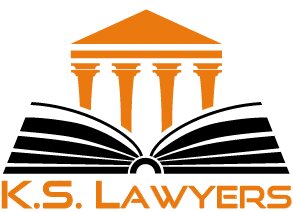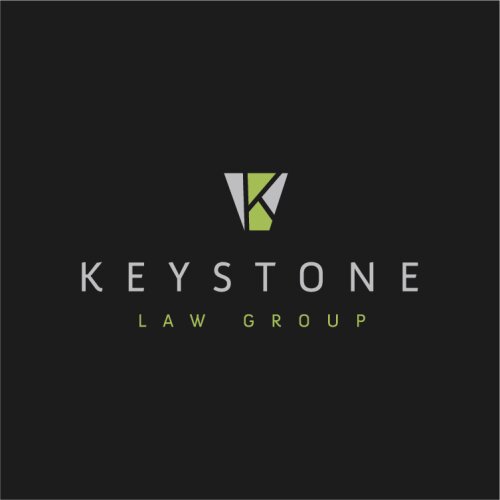Best Communications & Media Law Lawyers in Surrey
Share your needs with us, get contacted by law firms.
Free. Takes 2 min.
List of the best lawyers in Surrey, Canada
About Communications & Media Law in Surrey, Canada
Communications & Media Law in Surrey, Canada covers a wide range of legal issues related to communication and media content. This area of law deals with issues such as defamation, privacy, copyright, intellectual property, and freedom of speech. It also involves regulations related to broadcasting, telecommunications, internet, and other forms of media.
Why You May Need a Lawyer
You may need a lawyer specializing in Communications & Media Law in Surrey, Canada if you are facing legal disputes related to defamation, privacy violations, intellectual property infringement, broadcasting license issues, or any other communication or media-related legal matters. A lawyer can help protect your rights and provide guidance on how to navigate complex legal issues in this field.
Local Laws Overview
In Surrey, Canada, Communications & Media Law is governed by federal laws such as the Broadcasting Act, the Telecommunications Act, the Copyright Act, and the Criminal Code. Additionally, there may be provincial regulations that impact media and communication practices. It is important to be aware of these laws and regulations when dealing with legal issues in this field.
Frequently Asked Questions
What is defamation?
Defamation is the act of making false statements that harm a person's reputation. It can be classified as libel (written defamation) or slander (spoken defamation).
How can I protect my intellectual property rights?
You can protect your intellectual property rights by registering trademarks, copyrights, and patents for your creations. Consulting with a lawyer specializing in intellectual property law can help you understand the necessary steps to safeguard your rights.
What are the consequences of violating privacy laws?
Violating privacy laws can result in legal actions such as lawsuits, fines, or other penalties. It is important to be aware of privacy regulations when engaging in communication and media activities.
Can I use someone else's content without permission?
Using someone else's content without permission may constitute copyright infringement. It is advisable to seek permission or obtain a license before using copyrighted material to avoid legal consequences.
What are the regulations for broadcasting in Surrey, Canada?
Regulations for broadcasting in Surrey, Canada are outlined in the Broadcasting Act and are enforced by the Canadian Radio-television and Telecommunications Commission (CRTC). These regulations govern issues such as content, licensing, and broadcast standards.
How do I file a complaint against a media organization?
You can file a complaint against a media organization with the CRTC or the Canadian Broadcast Standards Council (CBSC) if you believe they have violated broadcasting regulations or standards. Consulting with a lawyer can help you understand the process and your rights.
What is considered fair use in media law?
Fair use allows for the limited use of copyrighted material without permission for purposes such as criticism, comment, news reporting, teaching, scholarship, or research. However, there are specific criteria that must be met to qualify for fair use protection.
What are the penalties for copyright infringement?
Penalties for copyright infringement may include fines, damages, injunctions, and potential criminal charges. It is essential to respect copyright laws and seek legal advice if you have concerns about copyright issues.
Can I be held liable for content posted by others on my website or social media accounts?
You may be held liable for content posted by others on your website or social media accounts if it constitutes defamation, violates copyright laws, or breaches other legal obligations. It is important to have clear terms of service and moderation policies to mitigate potential legal risks.
How can I ensure compliance with communication and media regulations?
To ensure compliance with communication and media regulations, it is advisable to stay informed about relevant laws, seek legal advice when needed, and implement appropriate policies and procedures within your organization. Working with a lawyer experienced in Communications & Media Law can help you navigate regulatory requirements effectively.
Additional Resources
For more information on Communications & Media Law in Surrey, Canada, you can visit the website of the Canadian Radio-television and Telecommunications Commission (CRTC) or consult with legal organizations such as the British Columbia Law Society for guidance and support.
Next Steps
If you require legal assistance in Communications & Media Law in Surrey, Canada, consider reaching out to a law firm specializing in this field. A lawyer can provide you with personalized advice, representation in legal matters, and help you navigate the complexities of communication and media law effectively.
Lawzana helps you find the best lawyers and law firms in Surrey through a curated and pre-screened list of qualified legal professionals. Our platform offers rankings and detailed profiles of attorneys and law firms, allowing you to compare based on practice areas, including Communications & Media Law, experience, and client feedback.
Each profile includes a description of the firm's areas of practice, client reviews, team members and partners, year of establishment, spoken languages, office locations, contact information, social media presence, and any published articles or resources. Most firms on our platform speak English and are experienced in both local and international legal matters.
Get a quote from top-rated law firms in Surrey, Canada — quickly, securely, and without unnecessary hassle.
Disclaimer:
The information provided on this page is for general informational purposes only and does not constitute legal advice. While we strive to ensure the accuracy and relevance of the content, legal information may change over time, and interpretations of the law can vary. You should always consult with a qualified legal professional for advice specific to your situation.
We disclaim all liability for actions taken or not taken based on the content of this page. If you believe any information is incorrect or outdated, please contact us, and we will review and update it where appropriate.












